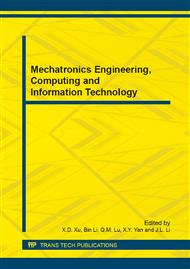p.6391
p.6395
p.6399
p.6403
p.6407
p.6414
p.6419
p.6425
p.6429
Modeling and Simulation Calculation of a Overwater Autonomous Air Defense Weapon System
Abstract:
According to the problems of island air defense, an air defense autonomous weapon system carried by a floating platform on the water is proposed. Compared with the traditional land-based air defense weapons, this weapon system has higher security and mobility. On the other hand, the waves would have a greater impact on the stability of weapons platforms. In order to demonstrate the feasibility of the weapon system in a variety of error conditions, the combat system model facing with the whole process from the sensors finding the target to the air defense weapons capturing the target. At the same time, the model of the chain of system accuracy is proposed by adding the various error sources generated by the waves and the system itself to the model. The quantitative assessment of the impact on accuracy system by each source of error is implemented with the system simulation method. Finally, the feasibility of using the weapons on the actual combat is demonstrated with the results of the accuracy analysis .
Info:
Periodical:
Pages:
6407-6413
Citation:
Online since:
May 2014
Authors:
Price:
Сopyright:
© 2014 Trans Tech Publications Ltd. All Rights Reserved
Share:
Citation:


